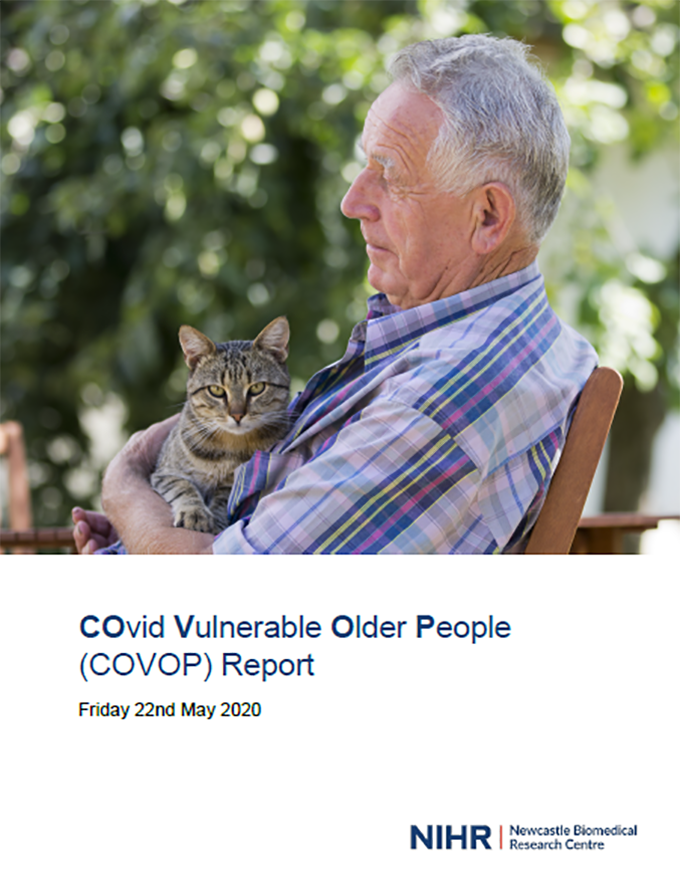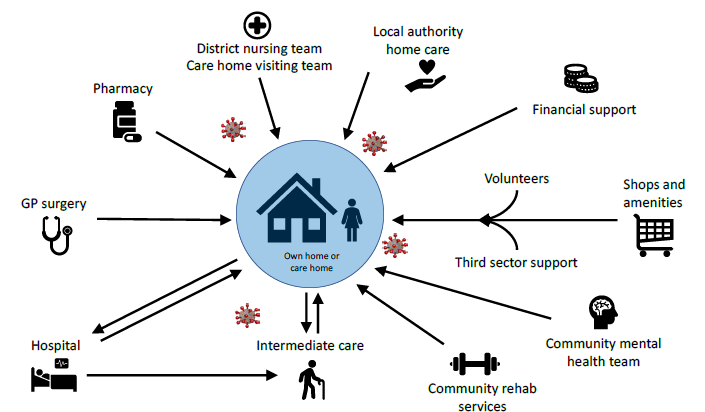Avan Sayer is a consultant geriatrician and professor of geriatric medicine and tweets at @AvanSayer. Richard Dodds is a consultant geriatrician and an intermediate clinical fellow and tweets at @dodds_rm. They are both based at the NIHR Newcastle Biomedical Research Centre.
Earlier this year health and social care organisations across Newcastle upon Tyne (Collaborative Newcastle) were focused on how to respond to the COVID-19 pandemic. There was already evidence emerging that older people, especially those living with frailty and multiple long-term conditions, were at greatest risk from this new viral infection. Professor Avan Aihie Sayer, Consultant Geriatrician at Newcastle Hospitals and Director of the NIHR Newcastle Biomedical Research Centre was struck by reflections of those involved in responding to the pandemic in Lombardy, Italy, recognising that a coordinated community response to COVID-19 within Newcastle would be crucial. She therefore set about urgently establishing a group with broad representation, with the aim of coordinating activity across organisations and sectors to reduce the impact of the COVID-19 pandemic on vulnerable older people across the city. It was clear that during the pandemic a vulnerable older person might need support from a whole range of local organisations and services, as shown below:
Our COvid Vulnerable Older People (COVOP) Action Group was established in late March 2020 and met online on four occasions during April and May, co-chaired by Professor Avan Aihie Sayer and Dr Steve Parry, also a Consultant Physician at Newcastle Hospitals and Clinical Director Older People in the Newcastle Gateshead Clinical Commissioning Group. As well as the organisations already mentioned, the COVOP Action Group included representatives from Newcastle University, Newcastle City Council and the Cumbria, Northumberland, Tyne and Wear NHS Foundation Trust. A key output from our action group was to bring together knowledge about the initiatives within each organisation, both those that were longstanding and those that were newly established for COVID-19. This has been a real eye-opener for members of the group, as Richard Dodds, an Intermediate Clinical Fellow at the NIHR Newcastle Biomedical Research Centre reflects: “In my clinical work I care for older people with complex health conditions. Through COVOP I’ve gained a greater understanding of the services available across the city for the patients that I care for.”
The COVOP Action Group has also led to a new initiative to support care home residents. Care home residents are particularly vulnerable to COVID-19 because of their complex medical problems, the prevalence of advanced frailty and the potential within care homes of cross-infection. At the outset, members of the action group supported care home staff, local GPs and the existing Specialist Care Home Support Team in Newcastle to speak to residents and their families about whether a personalised Emergency Healthcare Plan was appropriate, and to review existing plans in light of COVID-19. Further activity responded to the specific needs of local care homes, including assisting with the supply of PPE, disseminating swab results, and contributing to the visiting service set up by local GPs. Dr Terry Aspray, Consultant Physician at Newcastle Hospitals, who has provided senior clinical input to the project, commented: “COVID-19 presented a considerable and immediate challenge but it was remarkable how inter-disciplinary working across health and social care quickly focused on the common goal of care for the most vulnerable in our society.”
The COVOP Report has highlighted how fortunate we are in Newcastle to have a vibrant multi-organisational, multi-professional community dedicated to the care and support of vulnerable older people. The group has highlighted a range of excellent initiatives developed within organisations for vulnerable older people during the pandemic. Furthermore, it has facilitated information-sharing and relationship-building, enabling innovative service development at scale and pace across organisations, as exemplified by the care home liaison work. Our plan is to continue our work as an ‘Action Network’, further developing an integrative approach to services for vulnerable older people.

